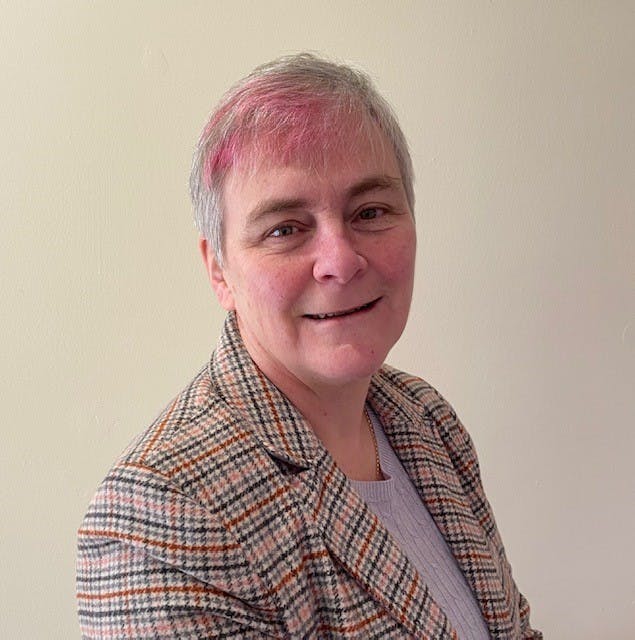Adult Protection Committee

This page should not be used to report an adult protection concern. If you're being harmed, or are concerned that someone you know may be at risk of harm, you should speak to someone about it. Call 999 if you, or the person being harmed, is in immediate danger. If less urgent - use the side link to report an adult protection concern to Adult Protection Network or call them on 01467 533100
The Aberdeenshire Adult Protection Committee is responsible for ensuring agencies work together to protect adults who may be at risk of harm. To ensure that we achieve this aim it is vital that we hear the views of people in our community.
The overall aim is the prevention of harm to adults at risk. The Committee duties include:
- evaluate staff, partners and the public’s knowledge of adult protection legislation and develop effective training
- raise awareness by giving information and advice to professionals and the wider community
- develop, review and audit procedures for inter-agency working and adult protection policies and strategies
- develop and introduce arrangements to audit and disseminate adult protection local activity
- consult with people using the service and the public about adult protection inter-agency services
- develop links and promote joint working with appropriate organisations and groups
The Committee was established after the Adult Support and Protection (Scotland) Act 2007 was implemented. It meets 5 times a year.
Committee members are from:
- Aberdeenshire Health and Social Care Partnership
- Housing Service (Aberdeenshire Council)
- Police Scotland
- NHS Grampian
- Ambulance Service
- Scottish Fire and Rescue Service
- the Care Inspectorate
- Advocacy North East
- Aberdeenshire Voluntary Action
- third sector organisations
The Committee is legally required to have an independent chair. Susan Maclaren chairs both this Committee and the Aberdeenshire Child Protection Committee.

This page should not be used to report an adult protection concern. If you're being harmed, or are concerned that someone you know may be at risk of harm, you should speak to someone about it. Call 999 if you, or the person being harmed, is in immediate danger. If less urgent - use the side link to report an adult protection concern to Adult Protection Network or call them on 01467 533100
The Aberdeenshire Adult Protection Committee is responsible for ensuring agencies work together to protect adults who may be at risk of harm. To ensure that we achieve this aim it is vital that we hear the views of people in our community.
The overall aim is the prevention of harm to adults at risk. The Committee duties include:
- evaluate staff, partners and the public’s knowledge of adult protection legislation and develop effective training
- raise awareness by giving information and advice to professionals and the wider community
- develop, review and audit procedures for inter-agency working and adult protection policies and strategies
- develop and introduce arrangements to audit and disseminate adult protection local activity
- consult with people using the service and the public about adult protection inter-agency services
- develop links and promote joint working with appropriate organisations and groups
The Committee was established after the Adult Support and Protection (Scotland) Act 2007 was implemented. It meets 5 times a year.
Committee members are from:
- Aberdeenshire Health and Social Care Partnership
- Housing Service (Aberdeenshire Council)
- Police Scotland
- NHS Grampian
- Ambulance Service
- Scottish Fire and Rescue Service
- the Care Inspectorate
- Advocacy North East
- Aberdeenshire Voluntary Action
- third sector organisations
The Committee is legally required to have an independent chair. Susan Maclaren chairs both this Committee and the Aberdeenshire Child Protection Committee.
-
National Hoarding Awareness Week
Share National Hoarding Awareness Week on Facebook Share National Hoarding Awareness Week on Twitter Share National Hoarding Awareness Week on Linkedin Email National Hoarding Awareness Week link
Hoarding specially if it leads to self neglect can have a significantly negative impact on the health and well being of a person. It is often upsetting for people who care for that person who feel powerless to support.
The National Hoarding Awareness Week run from 13- 17 May. It is an awareness campaign across the political, health and social care communities to raise awareness of the risks associated with hoarding.
If you want to get involved or to find out more information - National Hoarding Awareness Week
A free online discussion is being held on Let's Talk About Hoarding Disorder Tickets, Thu, May 16, 2024 at 3:00 PM | Eventbrite
-
Aberdeenshire Adult Support and Protection Report
Share Aberdeenshire Adult Support and Protection Report on Facebook Share Aberdeenshire Adult Support and Protection Report on Twitter Share Aberdeenshire Adult Support and Protection Report on Linkedin Email Aberdeenshire Adult Support and Protection Report link
Today the report of the joint inspection of Adult Support and Protection in Aberdeenshire was published on the Care Inspectorate website. The full report can be found here.
Jim Savege, Aberdeenshire Council Chief Executive and Chair of the Executive Group for Public Protection has welcomed the report findings, he stated ‘We are delighted to see the hard work of staff across all partner organisations acknowledged in such a positive report, to have the work of our partnership identified as ‘sector leading’ is an endorsement of the daily commitment shown by all.’
Inspection focused on two key areas.
Key Processes
Leadership
Our partnership in Aberdeenshire was found to be effective with areas for improvement in both these areas. The inspectors noted that there were clear strengths supporting positive experiences and outcomes for adults at risk of harm, which collectively outweighed the areas for improvement.
As a partnership we are pleased that the inspectors recognise that we are making a positive difference to adults’ lives. The report states:
“Almost all adults at risk of harm experienced improvements in relation to their safety as a result of adult support and protection interventions. This was almost always due to multi-agency working.”
In the file reading undertaken 94% of adults at risk of harm had some improvement for safety and protection and 96% of adults at risk of harm had support throughout their adult protection journey.
The Inspectors also recognised the improvements that have occurred since our last Inspection in 2017.
“The quality of adult support and protection interagency referral discussions, inquiries using investigatory powers, chronologies, risk assessments, case conferences and protection planning was high. The partnership not only maintained those areas of practice since the 2017 joint inspection but made improvements to their chronologies and quality of investigations. Interagency referral discussion practice was sector leading.”
Collaborative working was assessed to be strong throughout the partnership.
“Almost all partnership staff indicated that they were supported to work collaboratively and achieve positive outcomes for adults at risk of harm. Collaborative assessment of risk and shared decision making were strongly evident across key frontline processes from interagency referral discussion through to review case conferences”.
As with all Inspection activity, some areas for improvement were identified. Our processes and the way we record screening of ASP reports and initial inquiries were seen as requiring improvement. A workshop has been arranged so that staff help us lead the way on the required practice improvements.
Members of the Aberdeenshire Adult Protection Committee (APC) will meet on the 18 April. They will discuss areas that have been identified for improvement not only through the inspection activity but will also consider learning reviews and feedback from adults at risk and their carers and staff across the partnership. The APC will develop an improvement plan based on this session and share this in May.
-
ASP Day 2024
Share ASP Day 2024 on Facebook Share ASP Day 2024 on Twitter Share ASP Day 2024 on Linkedin Email ASP Day 2024 link Throughout Grampian, there are some adults who are more at risk from harm, due to illness, trauma and physical or mental health conditions.This Tuesday (20 February) is national Adult Support and Protection Day, and Public Protection partners are urging everyone to look out for signs of harm and report any concerns, ensuring those at risk can receive the help and support they need to live safely.
Throughout Grampian, there are some adults who are more at risk from harm, due to illness, trauma and physical or mental health conditions.This Tuesday (20 February) is national Adult Support and Protection Day, and Public Protection partners are urging everyone to look out for signs of harm and report any concerns, ensuring those at risk can receive the help and support they need to live safely. -
Be Scam Safe
Share Be Scam Safe on Facebook Share Be Scam Safe on Twitter Share Be Scam Safe on Linkedin Email Be Scam Safe link
The BBC have launched a ‘scam safe week.’ The link below takes you to the web site. There is tons of advice and really good videos.
-
Impersonation Fraud
Share Impersonation Fraud on Facebook Share Impersonation Fraud on Twitter Share Impersonation Fraud on Linkedin Email Impersonation Fraud link
Police Scotland has seen a rise in scammers impersonating police officers. Below and attached you will find advice on checking an officer's identity.
Police Scotland have also shared a video, the little guide to avoiding impersonation fraud, which you can watch by clicking the following link: https://biteable.com/watch/3449618/c01f1e13a725df1d4882e64fa00460c2
How to check an officer’s identity
If Police Scotland contact you, they will do so in person, by phone or by email. This will depend on the circumstances surrounding why they need to contact you.
Contact in person
If an officer contacts you in person, they’ll show you their police warrant card. This is proof of their identity and authority and you can verify this by dialling 101.
Contact by phone and Email
If an officer needs to speak to you on the phone or by email, they'll identify themselves clearly.
They will never:
• ask you for your bank details or PIN
• ask you to transfer funds to another account
• ask you to hand over cash or bank cards to a courier
• ask you to pay a fine or a fee to them or a third party over the phone or online
• ask you for remote access to your computer, passwords or log on details over the phone or online
• ask you to register personal details in an attachment they send or website they direct towards
• ask you to 'assist' in an investigation by doing any of the above
• communicate in an abusive, threatening or coercive manner
• ask you to click on a hyperlink to participate in an investigation
Remember if you're unsure about whether the person you're dealing with is a genuine police officer – stop – and call 101 to check their identity. You should also contact 101 if you think you've been a victim of fraud.
-
Doorstep Crime
Share Doorstep Crime on Facebook Share Doorstep Crime on Twitter Share Doorstep Crime on Linkedin Email Doorstep Crime link
Trading Standards were recently contacted by a resident in the Formartine area about a simple but notable roofing scam. The resident’s elderly neighbour had been contacted at home by a roofer who called at the address about work which the roofer believed was apparently required on the resident’s roof. The work was agreed and apparently completed and the neighbour paid the roofer by cheque for a 4 figure sum.
The roofer returned to the neighbour’s the next day and complained that the bank would not cash the cheque, so he would need a fresh cheque to cover his costs. Notably, the roofer did not return the first cheque but the neighbour duly obliged with a second cheque and the roofer left. However, he returned the next day to say the bank would not cash the second cheque either, so he would need a third cheque to cover the original costs. The roofer did not return the second cheque either. It was at this point that the resident, who was visiting his neighbour, intervened and called the conversation to a halt. He asked the roofer to leave or he would call the Police, so the roofer left.
The resident then helped his neighbour to contact his bank and report the matter. It appears that the roofer had presented the first cheque, which had cleared but the bank stopped the second cheque, which hadn’t yet cleared.
The obvious intent of the roofer was to extract as many cheques as possible from the vulnerable neighbour, thereby doubling or tripling his profits in the process.
Some points to consider:
• Our advice remains the same; as this incident demonstrates, dealing with doorstep callers is a highly risky business. Far safer to just thank them for their concern and say, “No thanks”,
• Take haggling out of the equation. Tell the caller that you have a relative who’s in that line of work and in this cost of living crisis, you’d like them to look at the issue instead,
• DO NOT discuss prices, so you remove the opportunity for the caller to say that they ‘will do it cheaper’,
• If the caller becomes persistent, tell them you have a visitor and you really must go back indoors,
• Alternatively, tell them you have a pot boiling on the stove and you’re worried it might boil over,
• If the caller becomes insistent, tell them you will call the Police (and mean it). If necessary, call the Police,
• DO NOT be afraid to close the door on the caller. They have had enough of your time, just remember to lock it too,
• Try to note as much detail as you can about the caller, their appearance and their vehicles and keep any paperwork they might hand over to you.
Report the matter to Police Scotland or Trading Standards, so that they can collate these reports and consider taking action against the caller.
-
Grampian Financial Harm Strategy
Share Grampian Financial Harm Strategy on Facebook Share Grampian Financial Harm Strategy on Twitter Share Grampian Financial Harm Strategy on Linkedin Email Grampian Financial Harm Strategy linkFinancial Harm is one of the most prevalent types of harm perpetrated against vulnerable adults – and across members of the wider community – and can occur under many guises.
Our aim is to achieve an effective & coordinated approach to preventing & responding to Financial Harm & minimising its impact, especially in relation to vulnerable adults, across Grampian. Action relating to this aim will be led by the Grampian Financial Harm Sub Group of the APCs. Core members of the Financial Harm Sub Group are:
• Aberdeen City Council (Adult Protection Social Work & Trading Standards); • Aberdeenshire Council (Adult Protection Network & Trading Standards); • Moray Council (Adult Protection Network & Trading Standards); • NHS Grampian; and • Police Scotland (Partnerships and Interventions & Crime Reductions Unit
The Grampian Financial Harm Group welcomes the publication of the Grampian Financial Harm Strategy. The Strategy and Financial Harm Group recognises the need to tackle Financial Harm and it's impact, which can be devastating.

-
National Hoarding Awareness Week
Share National Hoarding Awareness Week on Facebook Share National Hoarding Awareness Week on Twitter Share National Hoarding Awareness Week on Linkedin Email National Hoarding Awareness Week link
National Hoarding and Awareness Week is running from the 15th May. If you have an interest in this topic please visit the website and download the official involvement pack which contain a number of excellent resources and information about free webinars that are running during the week.http://hoardingawarenessweek.org.uk/
In Aberdeenshire a Self-Neglect Review Group was appointed by the Aberdeenshire Adult Protection Committee last year and we are currently gathering evidence regarding best practice. If you would like more information about the work that is occurring in Aberdeenshire to reduce the impact of self neglect please contact annmarie.bruce@aberdeenshire.gov.uk.
-
ASP Day
Share ASP Day on Facebook Share ASP Day on Twitter Share ASP Day on Linkedin Email ASP Day link There is a focus on Neglect and Self -Neglect on Adult Support and Protection Day (20th Feb) this year. The Aberdeenshire Adult Protection Committee has a priority on Self Neglect and work is progressing to reduce the risk and improve the response to self-neglect in Aberdeenshire. Concerns around adults at risk of Harm should be reported to our Adult Protection Team.
There is a focus on Neglect and Self -Neglect on Adult Support and Protection Day (20th Feb) this year. The Aberdeenshire Adult Protection Committee has a priority on Self Neglect and work is progressing to reduce the risk and improve the response to self-neglect in Aberdeenshire. Concerns around adults at risk of Harm should be reported to our Adult Protection Team. -
Biennial Report
Share Biennial Report on Facebook Share Biennial Report on Twitter Share Biennial Report on Linkedin Email Biennial Report link
http://publications.aberdeenshire.gov.uk/dataset/aberdeenshire-adult-protection-committee-2020
The Aberdeenshire Adult Protection Committee is please to announce that their Biennial Report 2020- 22 has been published. This report gives an overview of ASP activity in Aberdeenshire, what we have achieved over the last 2 years and what priorities are currently being taken forward.
Adult Protection
-
Click here to play video What is Adult Protection If you're being harmed, or are concerned that someone you know may be at risk of harm, you should speak to someone about it. Call 999 if you, or the person being harmed, is in immediate danger. Call 01467 533100 the Adult Protection network if it is less urgent or e-mail adultprotectionnetwork@aberdeenshire.gov.uk.
Important Links
Who's Listening
-

Phone 01467534650 Email annmarie.bruce@aberdeenshire.gov.uk -

Phone 01467 530639 Email lindsey.flockhart@aberdeeshire.gov.uk -

-


